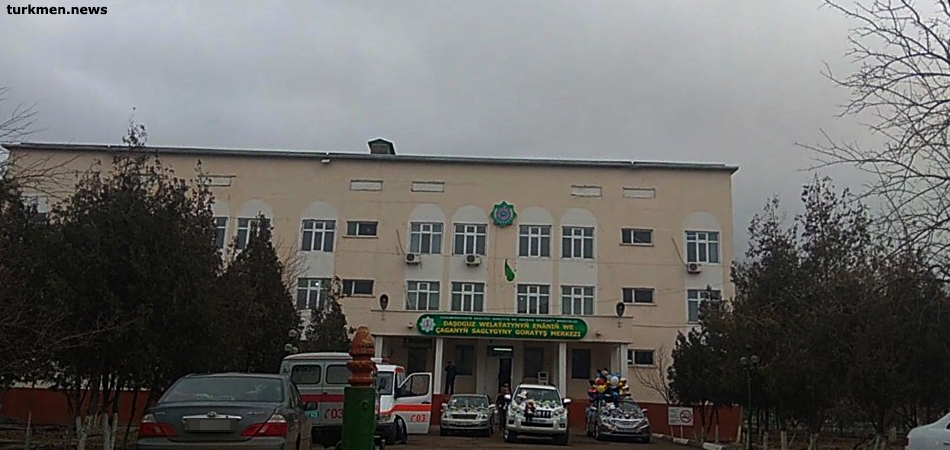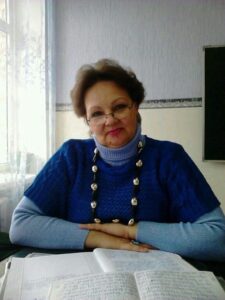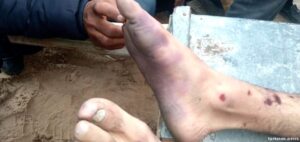
Turkmenistan Has Highest Child Mortality Rate in Central Asia
07.12.2019
The Ene Mahri mother and child health center in the northern town of Dashoguz has a high mother and baby mortality rate, even though the center is relatively new, and will mark its 10th anniversary in May 2020. Women prefer to give birth in the old regional maternity hospital even though it lacks basic conditions.

The wards are overflowing in the 30-year-old building. Designed for six, they now house 16 – eight mothers and eight children. The new mothers literally have to step over each other in order to reach their beds. It’s no easy task to change a baby’s diaper – there are no tables, or bedside cabinets in the wards, and no separate rooms for this in the hospital at all, and as a result a stench permeates the ward. The women and their newborn babies spend 72 hours on average in these conditions.
The smell and lack of hygiene make it impossible to use the only toilet on the entire floor, which is intended for both patients and staff – nearly 100 people all told. In order at least very slightly to ease the pressure on the lavatory, women are not allowed to use it for the first 24 hours after giving birth and have to wear adult diapers instead.
Personal hygiene also has to be carried out in the toilet.
Some prefer to use wet wipes, for which the doctors doing their rounds reprimand the new mothers, frightening them with the risk of septicemia. But the mums say it’s better to risk infection than wash in such insanitary conditions. And don’t even think about showers.
Despite these conditions, women want to give birth here and not at the Ene Mahri mother and child center. The reason? The high mother and child mortality rate at Ene Mahri.
It’s mainly new graduates of the medical college and institute that work there. Since the center opened in May 2010, preference has always been given to employing slim, beautiful women with dazzling smiles. This practice has led and continues to lead to the inexperienced graduates making quite a few mistakes. They pull the baby by his or her head, causing them injury, which is often fatal or disabling. While the women are in labor, they press on their stomachs in an attempt to help the birth, but in fact they are again causing irreparable harm to the baby. They convince young women from the villages that the child died in the womb or was injured during birth. The doctors give no details and don’t say how or why it happened. Instead they just say that Allah took the baby and hurriedly give the patient into the care of her relatives.
A turkmen.news source in the region, who is familiar with the situation, says that because of the sheer number of such cases women are refusing point blank to give birth at Ene Mahri and doing whatever it takes to go to the old maternity hospital.
“Recently one woman – her baby’s head was already visible – sat on the floor in the old maternity hospital waving a wad of money, ready to give up everything, begging them to let her stay and not send her to Ene Mahri, where as she put it – they mess up babies,” the source said.
The women try to find “their” midwife in advance, with long work experience, ideally since the opening of the old maternity hospital. So what if refurbishment of half the building has been dragging on for ages, and the wards are overcrowded, and there’s just one toilet for the entire floor – the pregnant women say they can put up with all this, as long as Allah doesn’t take their babies.
Expectant mothers have to take with them to both maternity centers a whole list of products, which they have had to buy though they should really be provided free of charge. The items include two packets of suture thread (in case of tears), two packets of sanitary towels, two rolls of paper towel, one bottle of liquid soap, and one bottle of baby oil. Even if the expectant mother does not need one of the items, she still has to bring it.
In addition to the official payment for giving birth – 250 manats, there are also unofficial payments: to the doctors, midwives, and nurses, which come to around 1,000 manats all together (around $55). But the family can accept the expense, as long as everything goes well for the mother and the child is born healthy.
You can read more about child mortality and maternal health in previous turkmen.news reports, written on the basis of data from the Turkmen National Strategy for the Protection of Reproductive Health and the Health of Mothers, Newborns, Infants, and Adolescents for 2020-2030.

Upmarket Bar in Ashgabat Closed After Brawls Involving President’s Cousins
08.04.2024

Petrofac Back in Favour in Turkmenistan After Falling Foul of Berdimuhamedov
18.03.2024

Turkmenistan’s Defense Minister Deprived Officers From Housing Entitlement Despite Widespread Resignations
28.02.2024

Murder and Suicide at Troubled Turkmen School
28.02.2024

Turkmen Prosecutor’s Office Claims Baloch Detainee’s Fatal Wounds Were Self-Inflicted
01.02.2024
Tell us!
Add comment
your e-mail will not be published